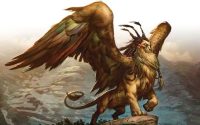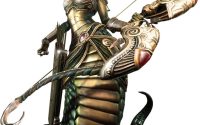Mythical Creature – Grendel From Beowulf
Mythical creatures come in all shapes and sizes, from the slender and savage monsters of Greek mythology to the gigantic and imposing creatures of myths and legends, such as Grendel from Beowulf. Here are a few things to keep in mind when looking into the traits of these legendary beasts.
Origins
When looking at Beowulf and Grendel, you might not think of a giant with two gigantic claws and a strange humanoid body. Yet, such an eerie creature makes up a great part of the epic poem.
Beowulf, the hero, sets off for Denmark to assist the king Hrothgar. In Geatland, he finds that Hrothgar is in trouble. He learns that Hrothgar has had a series of nightly raids by a troll, which are rumored to be cannibalistic.
Beowulf avenges Hrothgar and kills the troll. The battle between the two represents the rise of Christianity in Anglo-Saxon England.
While the battle between Beowulf and Grendel is a well-known story in Old English literature, it has been the subject of much debate. One faction believes that the epic poem’s most famous scene is a metaphor for the emergence of Christianity in Anglo-Saxon England. Another group argues that the poem is simply a literary fable, with little historical value.
Appearance
Grendel is one of the most iconic monsters in Beowulf. He is a half-man, half-dragon who is said to be a descendant of the Biblical Cain. His appearance is so unique that it has a number of different meanings.
The word “Grendel” means ogre in Old English. It is also the name of a giant monster whose teeth were more like reptiles than human teeth.
In Beowulf, Grendel was born in a swamp outside of Herot. When he was a child, he was banished from the human world. This is why his appearance was so unusual.
Grendel grew to hate and murder humans. In the early part of the book, he attacks the hall of Hrothgar. Eventually, he kills the chief advisor.
Despite this, he is considered a villain by the people of Hrothgar. He is blamed for all the deaths.
Strength and speed
It’s not just the mythological story of Beowulf that has gained popularity and fame. The movie adaptations of the epic poem are popular as well. They portray the strength and speed of the warrior who is a legend among all.
Beowulf is a hero who shows us that strength and skill are not the same thing. He is capable of performing feats that no human has ever achieved.
The first battle in the epic poem Beowulf takes place between him and the creature called Grendel. Grendel, also known as the Crime Force Dragon, is an evil dragon. Originally, he was only seen in the swamps of the Underworld of Satan. However, the monster returned after the Great Fire and vowed to kill Beowulf.
Several people attempted to attack and defeat the creature. Some of them used weapons, but none were able to penetrate the skin of the dragon.
Ruggedness
The epic poem Beowulf has many interesting characters, but one of the most memorable is Grendel. He is a powerful ogre and he has two giant claws. He is also a descendant of Cain.
Grendel is the first unique character in the epic. He represents the dark side of humanity. His behavior and appearance show a sense of solitude, which contrasts with the social order. In the poem, he is portrayed as a threat to the upper class.
He is a symbol of heathenism. He is also a symbol of abuse of power.
Grendel is a descendant of Cain, the biblical son of Adam and Eve. He is a hybrid of man and beast. It is unclear whether he was a natural or supernatural being.
Reputation
The reputation of Grendel in Beowulf is a theme of the book. In the eighth to tenth century, Grendel was considered a monster. His reputation was tied to his place in society. He was viewed as a slattern, a bad bloodline, a threat to the kingdom, and a monster.
King Hrothgar, who wished to rid the kingdom of Grendel, assigned Beowulf the task of killing him. While Beowulf is an accomplished warrior, he does not have the perfect reputation. To counter the reputation of his enemy, he engages in an unorthodox strategy.
Before Beowulf can confront Grendel, he must first convince King Hrothgar of his ability to kill him. As a result, he is placed under immense pressure. At first, the king is skeptical, but eventually he becomes convinced.



